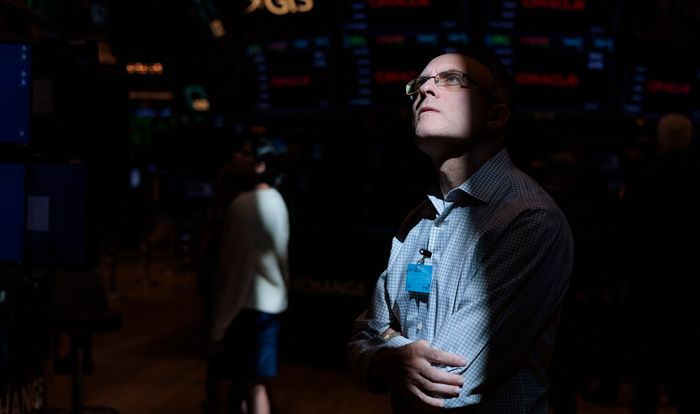
Wall Street is more convinced than ever that inflation is subsiding.
That’s giving investors hope that the Federal Reserve might be able to pull off what once seemed impossible: containing pricing pressures without tipping the economy into recession.
The economic data that came out this past week could hardly have been better. The consumer-price index, which tracks prices for everything from used cars to groceries, rose in June at the slowest year-over-year pace in more than two years. Inflation in wholesale prices cooled even more. An index measuring the prices fetched in June by warehouses, factories, farms, and energy producers rose at its slowest pace since August 2020.
The reports should help ease what has been one of investors’ biggest fears over the past year. The Fed has been rapidly raising interest rates to try to rein in inflation. Many money managers have worried that the Fed’s moves would lead to a recession. That is because when interest rates go up, so does the cost of borrowing money. That typically slows down spending and hiring among consumers and businesses—often to the point that the economy tips into a downturn.
The longer it takes for the Fed to bring inflation back to prepandemic levels, the more likely a recession seems. If inflation cools quickly enough, however, investors believe the Fed might be able to finish its interest-rate increases while leaving the economic expansion intact.
That’s exactly what markets seem to be pricing in.
The S&P 500 rose 2.4% this past week, its biggest gain in a month. The index is up 17% for the year, while the Nasdaq Composite, which heavily weights technology stocks, has risen 35%.
The yield on the 10-year U.S. Treasury note used to help set everything from mortgage rates to student loans, ended Friday at 3.818%, compared with 4.047% the previous week. That marked its biggest one-week slide since March.
“We all thought there would be a hurricane, but it hasn’t come yet,” said Brad Conger, deputy chief investment officer at Hirtle Callaghan.
This coming week, investors will get a look at fresh data on retail sales and existing-home sales, as well as earnings from companies including Morgan Stanley, United Airlines Holdings, and Tesla.
Parts of the economy have undeniably slowed. The housing market, for example, has cooled. The median price for existing homes being sold around the country fell 3.1% in May from the previous year, the biggest decline since 2011, according to the National Association of Realtors. The manufacturing industry has weakened too. At the start of the month, data from the Institute for Supply Management showed activity in the manufacturing sector contracted in June for an eighth consecutive month.
But the fact remains that, so far, the overall economy has evaded recession. The biggest U.S. banks posted better-than-expected results Friday, thanks to consumers and businesses continuing to spend and borrow money in the second quarter.
Generally good economic news has kept the market climbing.
“Earnings have been resilient, and inflation is less of a problem,” Conger said. “When you put those two things together, yeah, the market…it should be up.”
If the Fed ends up raising interest rates just one more time, as traders currently expect, and the economy keeps on chugging along, markets might have more room to climb, investors and analysts say.
What could go wrong, then?
The obvious answer is that the Fed decides inflation hasn’t come down enough to stop tightening monetary policy, and surprises investors by continuing to raise interest rates past July, said Rhys Williams, chief strategist at Spouting Rock Asset Management.
“Clearly the market is saying that inflation has peaked, the Fed is looking through the rearview mirror, and the incremental news is going to just keep getting better…but the data suggests the Fed might have to keep going for a while,” Williams said.
The Fed’s preferred inflation measure, the personal-consumption expenditures price index, rose 3.8% in May from a year earlier. That was the slowest pace in two years but still well above the central bank’s 2% inflation target.
Another risk is that economic momentum falters. Some indicators—such as the bond market’s yield curve, and the Conference Board’s leading economic index—have been at levels that have historically signaled recessions for months.
“We still think it’s coming,” said Jason Ware, chief investment officer of Albion Financial Group, regarding a recession. A downturn would likely hit corporate profits, sending stocks lower once again, he added.
The biggest worry some investors have is that they simply run out of reasons to keep pushing stock prices higher.
At this point, it seems as though the market has already priced in the good news: that inflation is less of a problem than investors feared, and that economic growth has at the same time been more resilient than investors anticipated, Conger said.
“It’s hard to see what will make the market go to even higher levels,” he added.


